FloEuro Adventures 2012Jul 9, 2012 by Kevin Liao
The Differing Euro Experiences
The Differing Euro Experiences
The Differing Euro Experiences

I've been out in Europe for about a week now. Aside from sightseeing, awkward attempts to communicate with non-English speakers and waffle runs, I've seen two very different sides of the European experience, a reflection of the difference between those looking to make it in professional track and field and those who already have.
Diamond League competitions are all about giving the world's best an avenue to showcase their talents against other top individuals. At my first Euro meet in Paris, I witnessed how one of the world's most glamorous cities hosted a well put-together meet along with accommodations worthy of the Diamond League label.
The meet hotel was the four-star Mercure Hotel located just a stone's throw from the Eiffel Tower. The lobby was flooded with world record holders and Olympic champions along with their support staffs, agents and others wanting to schmooze with the world's best performers. A meet of Paris's stature has a magnitude of sponsors, meaning athletes were not only compensated for hotel stay and meals but the likes of David Rudisha, Tyson Gay and Sally Pearson also received substantial appearance fees just for showing up.
The vast majority of competitors in Paris were the very top in their events with shoe contracts that make the troubles of daily life manageable. Without major financial worries, their focus can lie solely with their athletic pursuits.
A day after the Paris meet I found myself in a small Belgian town called Heusden, home of the KBC-Nacht meeting. Although it is the biggest meet on the Belgian circuit, Heusden paled in comparison to the 70,000 seat capacity of the Stade de France. The audience in Paris gathered to see an event, one that was highly produced and coordinated. Heusden, on the other hand, had a much lower-key atmosphere. Fans, including many parents with their children, sat back casually with a beer and bratwurst and took in the meet like an American family would spend a Saturday afternoon at their local pro baseball park.
The experience for the athletes, however, had a much different flavor than Paris did. They weren't provided much compensation for their efforts other than a meal ticket for dinner the night of the race. Unlike the Diamond League competitors making a relatively stable livelihood, the trip to Europe for many of the Americans is all about chasing fast times to prove their worth among the elite with shoe company deals. Without contracts, many are forced to give up their dreams of competing post-collegiately after a few years.
In other words, they're racing in Europe to continue living their dreams - dreams of pursuing professional running careers.
This stark contrast between the have's and have-not's is a complication for track and field. Athletes need the time to continue their development after college but they cannot do so without the proper financial support. I'm certainly not the man with all the answers, but if the United States wants to continue its reign at the world's track and field powerhouse, something's got to change.
Diamond League competitions are all about giving the world's best an avenue to showcase their talents against other top individuals. At my first Euro meet in Paris, I witnessed how one of the world's most glamorous cities hosted a well put-together meet along with accommodations worthy of the Diamond League label.
The meet hotel was the four-star Mercure Hotel located just a stone's throw from the Eiffel Tower. The lobby was flooded with world record holders and Olympic champions along with their support staffs, agents and others wanting to schmooze with the world's best performers. A meet of Paris's stature has a magnitude of sponsors, meaning athletes were not only compensated for hotel stay and meals but the likes of David Rudisha, Tyson Gay and Sally Pearson also received substantial appearance fees just for showing up.
The vast majority of competitors in Paris were the very top in their events with shoe contracts that make the troubles of daily life manageable. Without major financial worries, their focus can lie solely with their athletic pursuits.
A day after the Paris meet I found myself in a small Belgian town called Heusden, home of the KBC-Nacht meeting. Although it is the biggest meet on the Belgian circuit, Heusden paled in comparison to the 70,000 seat capacity of the Stade de France. The audience in Paris gathered to see an event, one that was highly produced and coordinated. Heusden, on the other hand, had a much lower-key atmosphere. Fans, including many parents with their children, sat back casually with a beer and bratwurst and took in the meet like an American family would spend a Saturday afternoon at their local pro baseball park.
The experience for the athletes, however, had a much different flavor than Paris did. They weren't provided much compensation for their efforts other than a meal ticket for dinner the night of the race. Unlike the Diamond League competitors making a relatively stable livelihood, the trip to Europe for many of the Americans is all about chasing fast times to prove their worth among the elite with shoe company deals. Without contracts, many are forced to give up their dreams of competing post-collegiately after a few years.
In other words, they're racing in Europe to continue living their dreams - dreams of pursuing professional running careers.
This stark contrast between the have's and have-not's is a complication for track and field. Athletes need the time to continue their development after college but they cannot do so without the proper financial support. I'm certainly not the man with all the answers, but if the United States wants to continue its reign at the world's track and field powerhouse, something's got to change.
Related Content
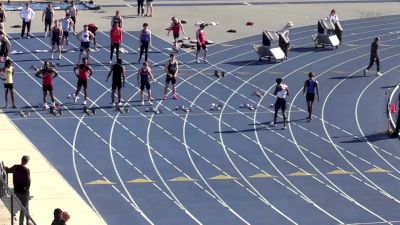 Replay: GVSU Extra Weekend | Apr 25 @ 12 PM
Replay: GVSU Extra Weekend | Apr 25 @ 12 PMApr 26, 2024
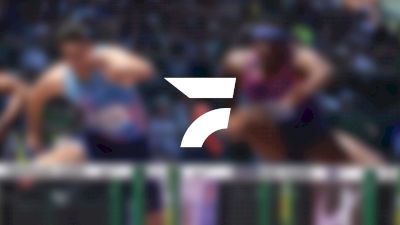 How to Watch: 2025 Ascension Seton Austin Marathon and Half Marathon | Track and Field
How to Watch: 2025 Ascension Seton Austin Marathon and Half Marathon | Track and FieldApr 26, 2024
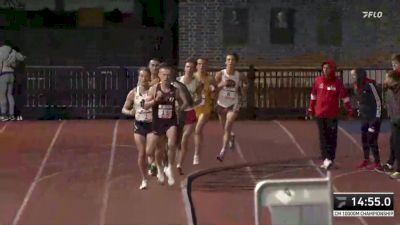 Men's 10k Event 210 - Championship, Finals 1
Men's 10k Event 210 - Championship, Finals 1Apr 26, 2024
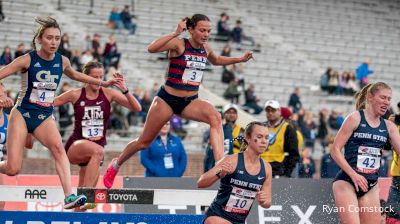 Penn Relays 2024 Results On Day 1: See Which NCAA Stars Won
Penn Relays 2024 Results On Day 1: See Which NCAA Stars WonApr 26, 2024
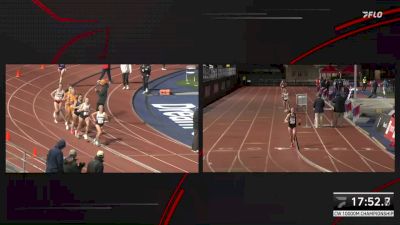 Women's 10k Event 209 - Championship, Finals 1
Women's 10k Event 209 - Championship, Finals 1Apr 26, 2024
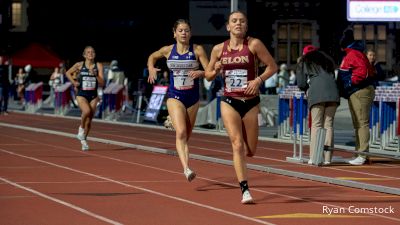 Jette Beermann Pushes To Win Women's 5000M Competition At Penn Relays
Jette Beermann Pushes To Win Women's 5000M Competition At Penn RelaysApr 26, 2024
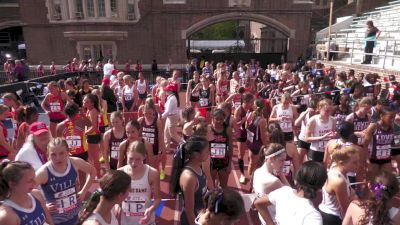 Replay: Paddock - 2024 Penn Relays presented by Toyota | Apr 25 @ 1 PM
Replay: Paddock - 2024 Penn Relays presented by Toyota | Apr 25 @ 1 PMApr 26, 2024
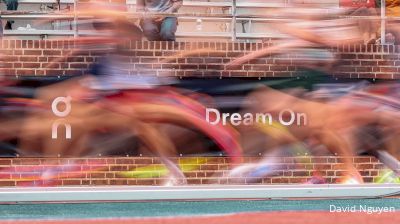 North Carolina Track And Field Stars Win At Penn Relays Year After Wreck
North Carolina Track And Field Stars Win At Penn Relays Year After WreckApr 26, 2024
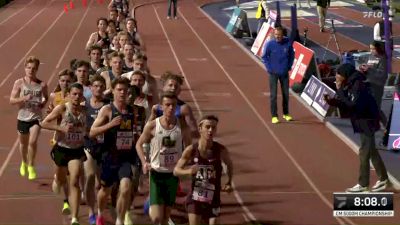 Men's 5k Event 208 - Championship, Finals 3
Men's 5k Event 208 - Championship, Finals 3Apr 26, 2024